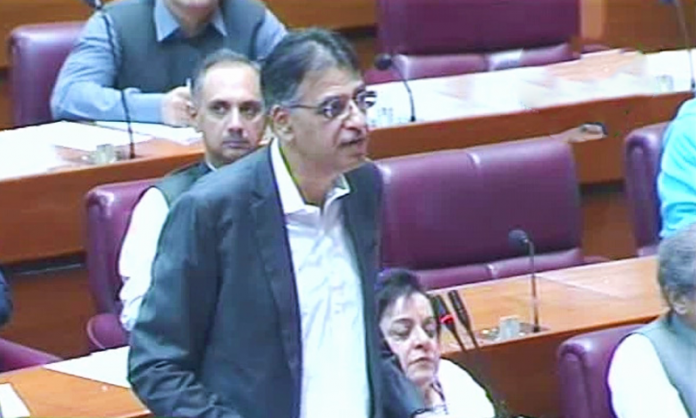ISLAMABAD: Federal Minister for Finance Asad Umar has said the government is committed to improve the fundamentals of economy and achieving sustainable and balanced economic growth.
The finance minister stated this while chairing a meeting of the Monetary and Fiscal Policies Coordination Board here on Thursday.
Secretary Finance Arif Ahmed Khan gave a detailed presentation to the meeting on the economic and fiscal situation. The meeting was informed that external balance has improved in the first four months of current fiscal year as current account contracted by 4.6 per cent due to significant increase in worker’s remittances, containment in imports and increase in export growth.
It was informed further that the fiscal consolidation remained a challenge during the first quarter as fiscal deficit increased to 1.4 per cent as compared to 1.2 per cent of the comparable period last year. FBR revenue continued to increase by 6.4 per cent and if gains traction it may bridge up the fiscal deficit going forward. Headline inflation is increasing on the back of non-food inflation above 8 per cent, whereas, food inflation is rising moderately by 2.7 per cent on account of smooth supply of commodities in the market and better price monitoring system.
The secretary finance also briefed the meeting about the economic reforms which the Economic Advisory Council has approved. The meeting also discussed the export credit facility offered by Saudi Arabia envisaging the purchase of crude oil and or other petroleum product (s) of up to $3.24 billion per annum on a 12 month deferred payment basis.
Governor State Bank of Pakistan (SBP) discussed monetary aggregates along with views on the economy. Broad money (M2) witnessed a rise of Rs35 billion from July 2018 to November 16, 2018 as compared to decrease of Rs67 billion in the same period last year which is entirely contributed by Net Domestic Assets (NDA) of the banking system as Net Foreign Assets (NFA) continued to contract. Despite rising interest rate overall private sector credit remained higher than last year.
The government borrowed Rs2,859 billion from SBP but on the other hand retired Rs2,619 billion to scheduled banks. While, net government borrowing from the banking system reached Rs186.5 billion compared to Rs383.5 billion over the previous year. The private sector credit increased to Rs304 billion during the period as compared to Rs69 billion last year. Expansion is seen largely in working capital followed by fixed investments.
Giving his concluding remarks, Finance Minister Asad Umar said that the decline in LSM sector needed to be studied by disaggregating the data so that appropriate measures could be taken to address the same. He also directed Finance Division to earnestly complete integrated policy paper focusing on economic strategy over the medium term.




